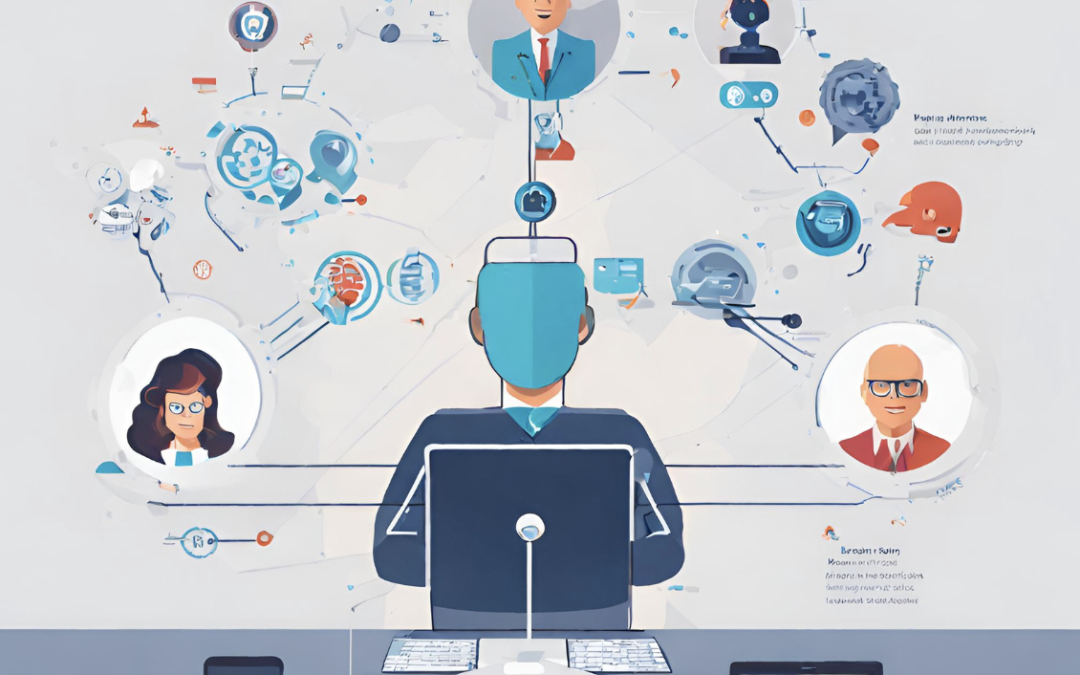In today’s rapidly evolving workplace, HR departments are constantly seeking innovative ways to enhance employee engagement and training programs. Enter Generative AI, a groundbreaking technology set to transform how we approach these critical areas. By leveraging the power of Generative AI, HR professionals can create personalized, engaging, and effective training content, foster a culture of continuous learning, and significantly improve employee engagement levels. In this post, we explore the potential of Generative AI within HR, offering a roadmap for those looking to harness its capabilities to revolutionize employee training and engagement strategies.
The Potential of Generative AI in HR
Overview of Generative AI: Generative AI refers to the subset of artificial intelligence technologies capable of creating content, whether it be text, images, or even code, based on the patterns and data it has been trained on. Its relevance to HR lies in its ability to automate and personalize aspects of employee engagement and training, making these processes more efficient and tailored to individual needs.
Benefits for Employee Engagement and Training: Generative AI stands to revolutionize HR practices by offering personalized training programs that adapt to individual learning styles and pace, thereby maximizing engagement and retention of information. It can generate immersive learning experiences, such as simulations and role-playing scenarios, that are not only interactive but also deeply resonant with employees’ real-world challenges. Furthermore, by automating the creation of diverse training materials, it allows for a more scalable and cost-effective approach to employee development.
Implementing Generative AI in Your HR Processes
Assessment of Needs: The first step is conducting a thorough analysis of your HR processes to identify where the integration of Generative AI could yield the most significant benefits. This could involve pinpointing inefficiencies in current training programs, areas where employee engagement is lacking, or opportunities for personalized learning pathways.
Choosing the Right Tools: Selecting the appropriate Generative AI solutions involves matching the tool’s capabilities with your HR goals and the specific needs of your workforce. It requires a careful evaluation of the tool’s ability to integrate with your existing HR tech stack, its scalability, and the quality of support provided by the vendor.
Integration with Existing Systems: Successfully integrating Generative AI tools into your HR processes demands a strategic approach. This includes ensuring data compatibility between new and existing systems, training HR personnel to leverage these tools effectively, and setting up appropriate feedback loops to measure the impact of these integrations.
Case Studies: Generative AI in Action
Successful Implementations: Highlighting examples where organizations have successfully implemented Generative AI in their HR processes can provide valuable insights. For instance, a company might use Generative AI to create a dynamic onboarding process that adapts to the learning speed and preferences of new hires, significantly improving their initial experience and long-term retention.
Lessons Learned: Key takeaways revolve around the importance of aligning AI applications with strategic HR objectives, the value of stakeholder buy-in, and the need for continuous monitoring and adjustment of AI-driven initiatives to ensure they meet the evolving needs of the organization and its employees.
Overcoming Challenges
Addressing Skepticism: Overcoming skepticism about Generative AI involves clear communication of its benefits, addressing concerns transparently, and demonstrating its positive impact through pilot programs or case studies.
Ensuring Data Privacy and Security: Choosing Generative AI tools that prioritize data protection is crucial. This means selecting vendors that comply with data protection regulations, ensure data encryption, and provide guarantees that the data used for training AI models is not accessible by unauthorized parties.
Continual Evaluation and Adaptation: To maximize the effectiveness of Generative AI in HR, organizations should establish metrics for success and continually assess the performance of AI-driven processes. This iterative approach allows for the refinement of strategies and ensures that the organization remains agile in its use of AI technology.
The Future of HR with Generative AI
Trends and Predictions: The future of HR with Generative AI is likely to see an even greater emphasis on personalization, with AI-driven insights enabling more nuanced understanding and support of employees’ career aspirations, well-being, and learning journeys.
Staying Ahead of the Curve: For HR professionals, staying informed about advancements in Generative AI technology means actively participating in HR tech forums, following thought leaders in the AI space, and continuously experimenting with new tools and approaches to employee engagement and training.
Generative AI represents a pivotal shift in the way HR departments can engage employees and conduct training. By personalizing learning experiences, automating content creation, and fostering a culture of continuous improvement, HR professionals can leverage Generative AI to meet the unique needs of their workforce. As we look to the future, the integration of Generative AI within HR processes promises not only to enhance employee engagement and training efficacy but also to redefine the role of HR in the digital age.
Keywords: Generative AI, HR Technology, Employee Engagement, AI in Training, Personalized Learning, HR Process Automation, Employee Development, AI Integration, Data Privacy in HR, Continuous Learning, HR Innovation, Future of HR, AI-Powered HR Solutions, Workforce Transformation, Adaptive Learning Systems.


Recent Comments